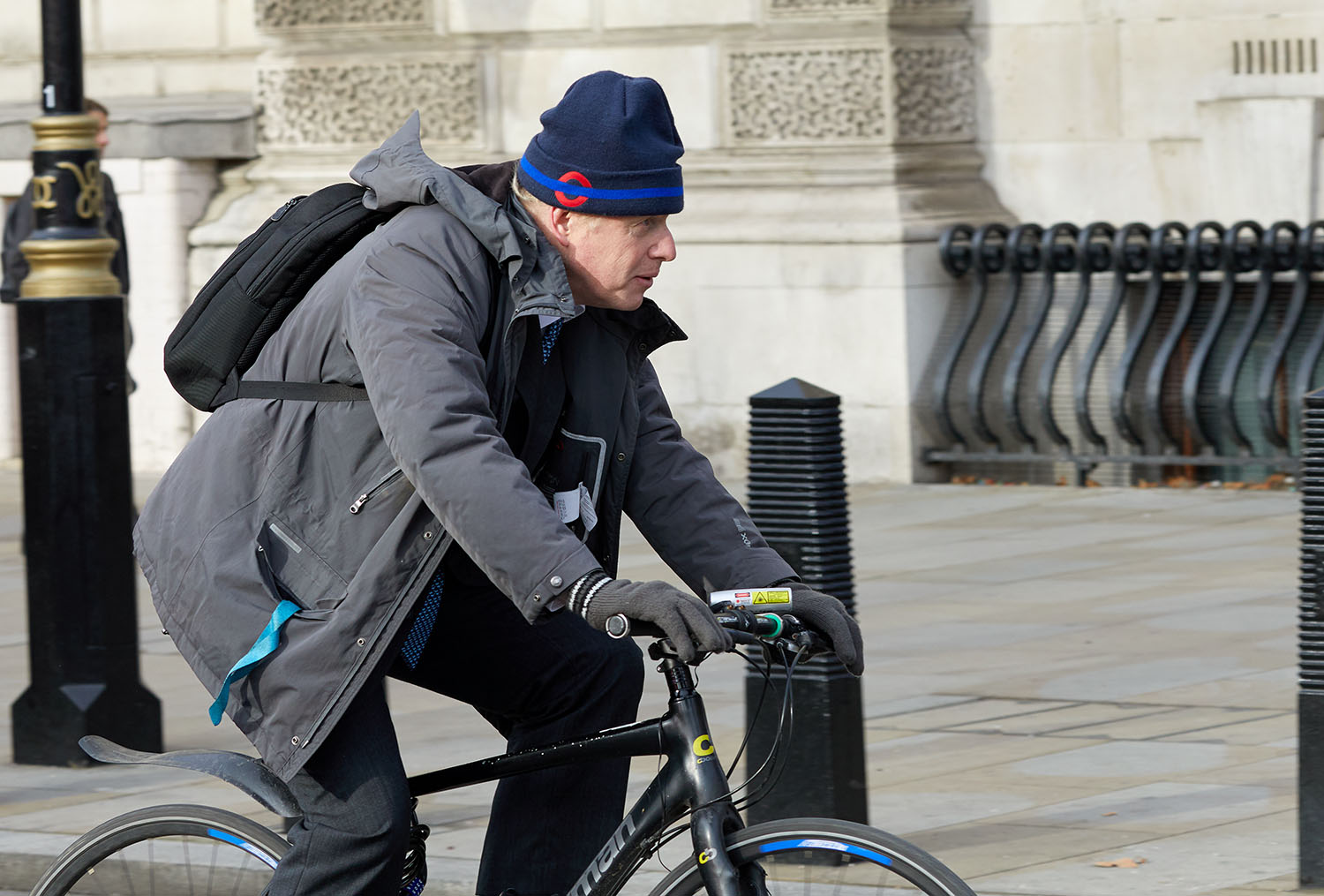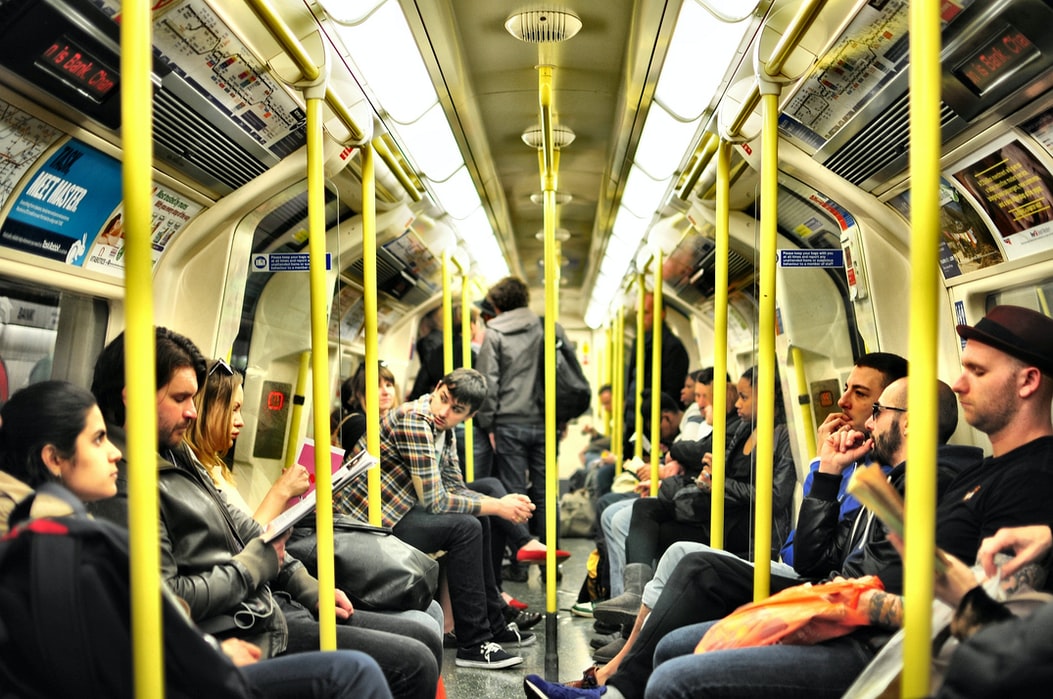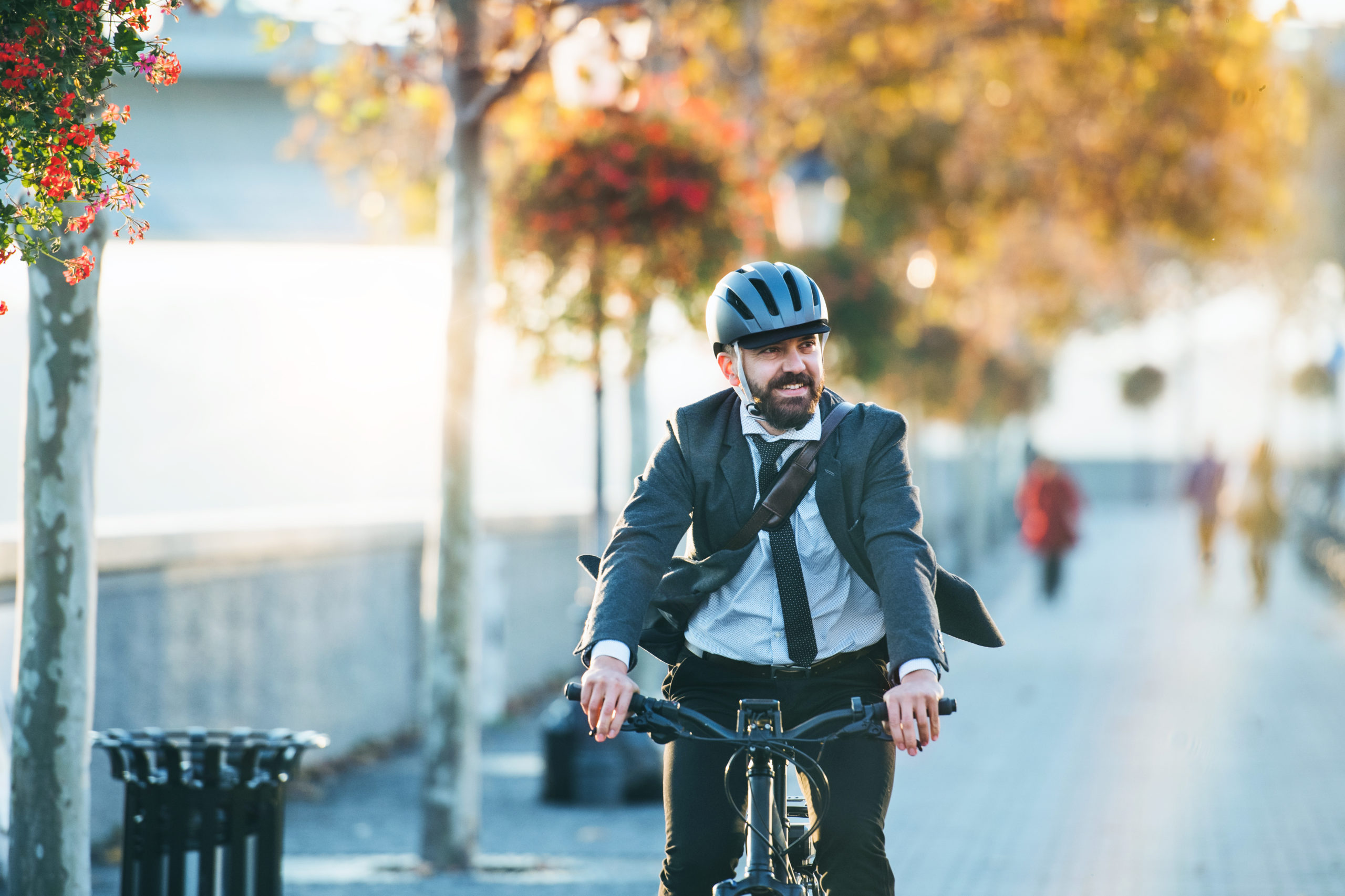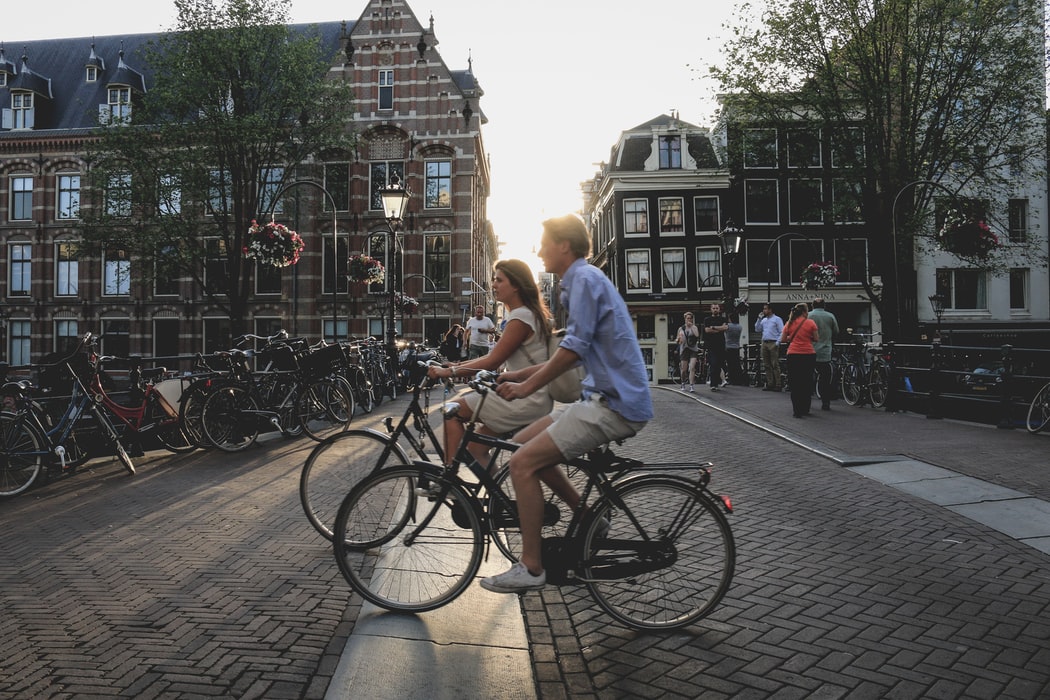
Dear Boris,
This weekend we will all be watching as you outline plans to start easing the lockdown. These next few days and weeks are critical and one of the big challenges will be to get more people back into work safely. But how should we commute during this crisis?
Staggered start times, working in shifts and raising the price of bus and train tickets during peak times are just some of the options. But I don’t think many will want to get on a bus or a train – especially in big cities.
In London, commuter numbers on buses and tubes could fall up to 40%, according to a recent poll, with rail use down 27%.
Of course, some of this reduction will be because people have found they quite like waking up at 8.55am to start work at 9am. And still in their pyjamas. (Which isn’t for everyone. Those with small children – and here I speak from experience – are desperate to get back into the office (provided it’s safe to do so).
But people shunning public transport is only bad news if they get into their cars instead. And this is where you come in: encouraging short trips by bicycle rather than car.
This means leadership. This means action. This means investment – in everything from lanes and sharing schemes to fiscal incentives for businesses that encourage zero-carbon commuting.
In the short-term, congestion is reduced on the roads, crowding is eased on the trains and buses to help social distancing and people get fitter physically and mentally). Longer-term the benefits could be even greater, with reductions in air pollution and emissions as well as the population’s waistline.

Easy does it
Indeed, this lockdown is certainly not ideal but it has been a pretty neat experiment on what the future of transport could look like.
Now, I say future but I don’t mean 2040: I mean late 2020 (when hopefully we will all be less isolated). I see your colleagues at the Department for Transport produced your own vision in March – but forgot to tell anyone it had been published. You had told us to stay indoors for three weeks a few days earlier but this was good news to follow the bad.
For example, I’d never heard a secretary of state for transport say something like: “Public transport and active travel will be the natural first choice for our daily activities. We will use our cars less and be able to rely on a convenient, cost-effective and coherent public transport network.”
In March, announcing £5 billion for buses and cycling you also talked of “a new generation of cyclists who pedal safely and happily to school and work in tree-dappled sunlight on their own network of fully segregated cycle paths”. A month later and that started to become reality, as NHS and other key workers took to their bikes to get around safely and quickly.
Cobwebs have been dusted off long-forgotten machines. Key workers are pedalling to the frontline. And families are spending time with each other on two wheels. All are fitter and enjoying the fresh air.
Now is the perfect time to grab the bike by the handlebars – because more people are cycling more often. This is great for the environment (carbon emissions and air pollutants fall) and our health (both physical and mental).
Never has it felt safer to give cycling a go. Traffic is light to non-existent and we’ve jumped towards that vision you have of “decarbonised transport”.

No need to mind the gap
Consider this enthusiast who talked to the BBC:
“Before the outbreak, I’d normally drive to work. I wouldn’t cycle in Glasgow because I’m worried about safety; the roads used to feel too busy and dangerous and I wasn’t confident. The bike has been fantastic,” said Kirsty Clift, a care assistant from Bishopbriggs. “The quieter roads have given me the confidence boost to ride my bike and you get a bit of exercise in the 20-minute cycle. It’s good for mental health too. I feel more energetic, and more positive.”
She had borrowed an electric bike. Indeed, new tech like this is key. E-bikes mean that people who thought they couldn’t cycle a few kilometres to the shops or work can. It also means those who like to cycle can go further. And so the number of trips begins to rise.
The target is shorter journeys. At least 35% of the trips we tend to make are under 5km, so a 20-minute ride for the average Joe on a standard bike. Around 50% of the trips are under 10km, which takes less than 30 minutes on an e-bike. Currently, only 6% of these urban trips (globally) are completed by bike or e-bike. In London the figure is 5%.
And there are hundreds of thousands of Kirstys out there, raring to keep going. Imagine the cost savings: as people cycle more, they get fitter (and less fat); as people drive less, the air becomes cleaner. Everyone becomes healthier (physically and mentally) and the burden on the NHS and its heroes falls.
Here’s a theory
Albert Einstein wrote to his son Eduard, in 1930: “Life is like riding a bicycle, to keep your balance, you must keep moving.” The government needs to get moving in order to keep people pedalling: this could, with a little investment, effort and action, be your legacy.
I’m not talking about a gradual plan with a “we are working towards” kind of target that government’s usually favour (with an ambiguous deadline set for a time when you will be relaxing on the beach on Mustique penning your memoirs).
Like this one: “As part of our aim to build a society that works for all, we want more people to have access to safe, attractive routes for cycling and walking by 2040.” That was in the 2017 cycling and walking investment strategy drawn up by the previous government, which tended to miss targets.
Speaking of targets, the aim was “to double cycling activity by 2025”. Here are the DfT’s latest cycling stats, from 2017:
- Number of trips by bike are down 8% since 2002
- Staged trips by bike are down 4% since 2002
- Just 18 trips per person were made per year (!)
- We each spent on average just seven minutes a week travelling by bike
- Only 20 miles of commuting is done by bike per person per year
Meeting those seemed a big ask a few weeks ago. However, the coronavirus crisis has given you an opportunity to shoot through that five years early, and for relatively little spend. Numbers of cyclists in Scotland, for example, have doubled in some areas.

Let’s go Dutch
Look at France, where £17m has been offered up so everyone can have bikes repaired at registered mechanics. This is great but we can do better – think everything from cycle lanes to supporting businesses that install showers at work).
In February, when you announced £5 billion of “new investment for buses and bicycles”, you talked about “cyclists enjoying hundreds of miles of brand-new separated lanes, with ‘mini-Hollands’ blooming”.
But to go Dutch you need to spend a bit more money. Of that £5 billion, £350m will be on cycling. “That’s just over £1 per person per year – about 1/20th of what you need for an actual cycling revolution,” tweeted Peter Walker (author of Bike Nation: How cycling can save the world).
So, whilst it was great to hear that, in a call with UK mayors this month you (reportedly) told them about the opportunity to push clean, green travel, active travel as well as cycling infrastructure to get cars off the road, you need to put your money where your mouth is.
This is hard to justify currently (you are paying millions of people’s salaries), but not when you consider how much you might spend bailing out more polluting industries and the savings in healthcare (and even court appearances over failure to meet air quality targets). Or indeed the £29 billion road-building plan announced by your Chancellor in March.
Fork in the road
We have a terrible record on air quality in this country, but you can’t just hope that people will carry on cycling after this crisis. Of 20,000 drivers polled recently, 22% reckon they will drive less post-lockdown, whilst 36% will walk, cycle or run more. Don’t believe them. They won’t. Not unless cycling remains as easy and safe as it has been in recent weeks.
People have got used to clear, safe roads full of fresh air rather than furious drivers. Cities all over the world are reallocating road space from cars to walkers and cyclists. Do we want to lead this particular peloton or fall off the back before the race has even started?
In 2017, nearly all (96%) of local authorities had less than 20% of their adult population cycling at least once a week. But more and more are penning climate emergency plans and many have huge issues with air quality levels.
Coronavirus is the kick they – and residents – needed to get going. This is about turning people – hundreds of thousands of people – from fairweather do-it-in-lockdown-when-there-are-no-cars-or-commuting cyclists to the cycling-everyday sort.
“If we don’t seize this moment, the moment will be lost and we will return to normal,” said shadow green transport minister Kerry McCarthy.
Things are not going to return to normal anytime soon. But they will, eventually. Consider this your fork in the road.